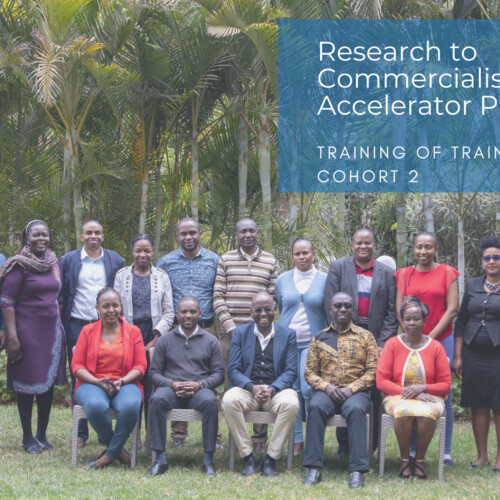Introduction
ViKtoria Ventures is committed to empowering budding entrepreneurs by equipping them with knowledge and skills that will help them:
- Evaluate the performance of their businesses
- Assess the funding needs of their businesses
- Prepare pitch decks
- Prepare to pitch to investors
- Negotiate with investors
- Manage post-investment communication
We achieve the above objectives by coaching and mentoring entrepreneurs on a need to need basis as well as through startup boot camps held semi-annually.
ViKtoria’s end goal is to prepare as many early stage businesses for external funding with the hope that they will find financing with ease. We also make the fundraising journey easier for startups by selecting a few that we present to our Angel Network to pitch for funding.
The Event

We launched our startup boot camp edition in April 2016, and had over 30 startups represented at the event held at iBizAfrica, Strathmore University. It was a beautiful morning on Thursday, 14th April 2016, and the room was abuzz with activity as the participants networked with other attendees and the ViKtoria Ventures team. The lead trainer Stephen Gugu, started the session at 9:00am with a quick introduction of the agenda before introducing the Panel for the day, Laila Macharia, a local angel investor, and Meshack Alloys, the founder and proprietor of Sendy. Stephen introduced the discussion by requesting the panelists to share their experience in angel investing from both sides of the spectrum; Laila spoke from an angel investor’s perspective while Meshack did so from the perspective of a startup that has obtained funding.
It was evident that angel investors will fund entrepreneurs who show passion for the business and have an affable personality; this is because the two parties will be partners for a long time to come. It was also clear that investors appreciate regular and detailed communication on the performance of the venture initiated by the entrepreneur.
Furthermore, angel investors at this stage tend to be very involved in the running of the business, sometimes even meeting with the entrepreneur once a month to discuss the progress and strategic direction of the business. Meshack reiterated the need to find angel investors who have an interest in the industry the startup is operating. Laila also highlighted that there is no set of rules that angel investors go by when selecting investments; rather every angel investor has their preferences and requirements. However, we would like to caution unapproachable and sluggish entrepreneurs- they will not get funding easily. The participants were allowed to ask questions before closing the interactive and insightful session. One question that caught our attention was on how to inform investors that things are not panning out. Meshack advised that this should be communicated sooner than later and the entrepreneur can set the stage with an email update before going for a face-to-face meeting. This was a good question as a number of entrepreneurs end up in such situations and don’t know how to handle them.
The technical session was steered by Stephen, the lead trainer for the day. He started by asking startups that had received funding in the past to describe the negotiation process and the type of funding they received. Surprisingly, most of them negotiated the deals without consulting with experts, which is a red flag in any negotiation process. We also found that some of them did not know the type of funding they had received- fortunately, the training content covered this topic, and by the end of the session they understood the different types of capital and capital providers. The attendees also learnt how to determine the funding need for their businesses and the value chain of an investment process.
Summary
The entrepreneurs learnt that different capital providers fit in and come in at different growth stages of the company. They also learnt that they will need to bootstrap to get the startup off the idea stage before they can attract angel investors who will catapult them to the survival stage.
Stephen had planned a breakout session where participants were supposed to form groups of twos, with one party being a venture capitalist and the other an entrepreneur. The objective was for the two parties to negotiate a deal and understand the key deal terms as well as the deal breakers for the other party. Due to time constraints, this was given as a take-home assignment. In summary, some deal breakers for venture capitalists include valuation, Board representation, and founder shares vesting whereas founders would value wins in sweat equity, CEO replacement, and anti-dilution clauses. Nonetheless, a good deal is one where concessions are made to create value for the other party.
The session ended at 1:00pm with a thank you note from the trainer.
Offhand, the ViKtoria Ventures team believes that it was a fruitful first edition! We encourage all ventures seeking to work with ViKtoria to register on our Gust profile here.























